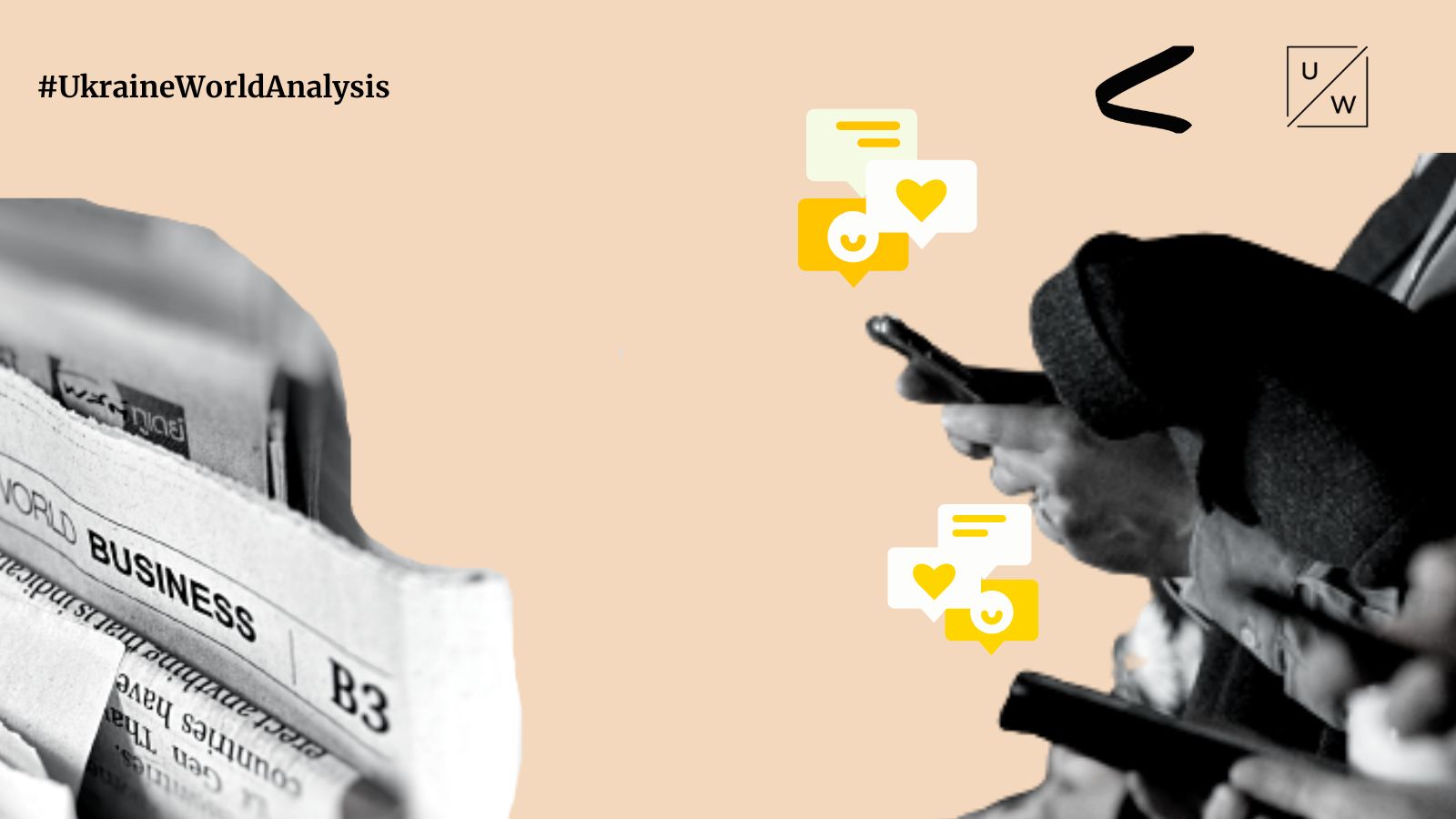Why is the draft law “On the Media” important? UkraineWorld spoke to Oleksandr Burmahin, a member of the National Council. Key points – in our brief.
1. On the need to reform current legislation
- The draft law marks a reform of Ukrainian media legislation, which has not changed since the 90s. This includes liberal online regulation of the media, enabling the Regulator to communicate with shared access platforms (i.e. social media), co-regulation by the media together with the regulator to work out broadcasting regulations.
- This will help form clear rules of the game on the market regarding complex content restrictions, such as hate speech, propaganda, and dangerous content. Providers of electronic networks such as the BRT Concern (Broadcasting, Radiocommunications & Television) will be regulated.
2. On the essence of the “On the Media” draft law
- The draft law makes changes to election legislation regarding the distribution of information during the election process and campaigning. The mechanism of responsibility is made simpler and clearer.
- We introduce Section 9 and a body of rules in the context of war - countering aggression of Russia, and special rules regarding the action of the regulator during the war, which will allow prompt response to challenges, such as temporary broadcasting permits.
- An institute of public audio-visual media is being created. These include the Public Broadcaster, both national and foreign.
- The draft law establishes two local-level subjects - local public audiovisual media and communal media. The creation of independent supervisory boards, which will ensure the editorial independence of these broadcasters and the possibility of funding from government budgets, is more clearly defined. Community broadcasting is a type of media that can be founded by public organizations that unite the interests of certain groups, such as students, collectors, and others.
3. On voluntary media registration
- Voluntary registration is used in two cases: for the press (in peacetime) and online media. Voluntary registration means that such are subject to the obligations and content restrictions that apply to all other media.
-
Registration offers many benefits: official legal status as a media outlet, protection of professional activity, participation in tenders for covering the activities of authorities, and lighter penalties for violations.
4. On critics of the draft law
- Critics are trying to sabotage the European integration project. As an EU candidate state, Ukraine is required to implement the Audiovisual Media Services Directive, which means the country’s media regulator must be institutionally capable.
- Critics also insist that not all quotas for Ukrainian-language media content have been transferred, or that they have been reduced in comparison to current regulations. This is not true. All quota requirements and regulations have been transferred into the draft law. They insist that penalties for the violation of quota requirements of up to 10% have been eliminated, but the fact is that these penalties remain.
- Whereas earlier any violation of the language quota, even of 1-2 songs, led to a fine for the broadcaster, now a certain balance has been introduced. Now, a prescription is issued in case of a violation of 10% or less, while the Regulator will impose fines for violations of more than 10%. The prescription is taken into account when renewing licenses and resolving temporary permits. This is by far a more civilized approach to the application of sanctions.
- There are also deceptive criticisms of blacklists. The lists, as maintained by the Ministry of Culture, are kept for at least 2 years. This media reform is undergoing close supervision by international experts at the European Commission and the Council of Europe.
- European peacetime standards contain no mechanisms by which state bodies can form blacklists without court orders. A person from the list is forbidden to be on the air and take part in any media product. The SBU (The Security Service of Ukraine), the National Council, and the National Security Council set the blacklist, while the Ministry of Culture enforces it. * The current law lacks criteria, inclusion or exclusion mechanisms, and transparent procedures. But the draft law develops the criteria for inclusion and exclusion of people and introduces a deadline for reviews of decisions. Therefore, the list remains, and criteria for forming the list have been created.
- We did not include any rules regarding the banning of Russian songs on airwaves. These were removed because the mechanism for this ban does not work. The essence of the mechanism is that the content should be prohibited if the performer or operator is a citizen of the RF. Questions have arisen about how the National Council will establish the legal fact of Russian citizenship.
- The Fedyna-Sanchenko law should enter into force in October. It has increased the quotas on Ukrainian radio by 10% and prohibited performances by cultural actors from the RF. Regarding songs and broadcasts, radio stations buy the rights to musical works by playlists. And there is no information about the nationality of the performer.
This material was prepared with financial support from the International Renaissance Foundation.
DARIA SYNHAIEVSKA, ANALYST AND JOURNALIST AT UKRAINEWORLD
Oleksandr Burmahin, A MEMBER OF THE NATIONAL COUNCIL

